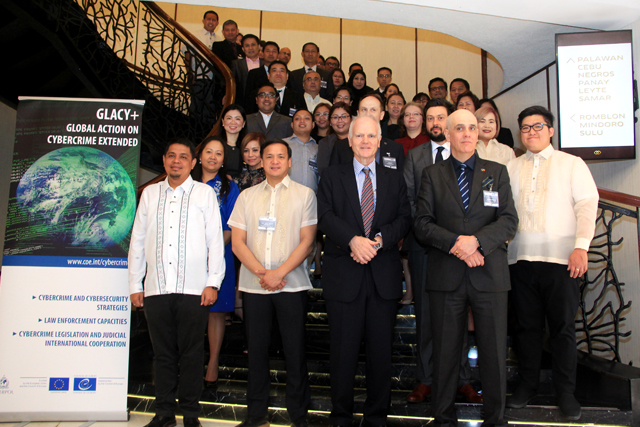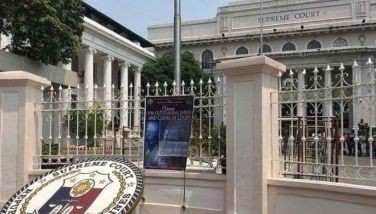In the Philippines, EU underscores need to address cybercrime

MANILA, Philippines (As released) — European Union Ambassador Franz Jessen on Tuesday underscored the need for international cooperation and dialogue to combat cybercrime.
Jessen made the statement during the Training of Trainers Course on Cybercrime and Electronic Evidence for Judges, Magistrates and Prosecutors of the ASEAN Region which opened on Tuesday.
"Cybercrime knows no borders, to fight it we need international cooperation,” Jessen said.
"We need international agreements. We need dialogues so that we find ways to learn from each other especially as we have a shared objective in this fight against cybercrime," he added.
Jessen expressed his appreciation to the Philippines for its efforts to join the Budapest Convention in the past few years, culminating in the passing of the Accession Instrument by the Senate in February this year.
As soon as the Philippine Instrument of Accession is deposited to the Council of Europe, the Philippines would be the 57th party to the Budapest Convention on Cybercrime.
The ambassador said the Budapest Convention on Cybercrime is much more than a tool to address online child sexual exploitation and abuse.
The convention provides a framework for common definitions in criminalizing cyber offenses as well as for procedural measures in law enforcement.
These measures include an expedited preservation of computer data and the network of round-the-clock contact points with designated central authorities in each member state covered by the convention.
Manuel Almeida Pereira, who is part of the Global Action on Cybercrime+ or GLACY+ and project manager of the Council of Europe, said that the council has trained high-profile stakeholders on how to spread awareness about cybercrime.
Pereira said crime has no face in this digital age.
What the EU is doing
The EU has worked with the Council of Europe, an organization of 47 member states, to fight cybercrime not only within its member states, but also beyond. Cybercrime, after all, knows no borders.
It started its efforts to engage with countries globally in international cybercrime cooperation.
Starting with a budget of €3.35 million, GLACY+ became a concrete output of this initiative to support seven priority countries, including the Philippines. This will prepare the state parties for the accession to the Budapest Convention on Cybercrime.
The project was expanded in 2016 with GLACY+ which had a €12-million budget from the European Commission and another € 1.3 million from the Council of Europe.
Ambassador Jessen said that given the Philippine commitment and its rich experience in driving the fight against cybercrime, it functions as a hub within GLACY+.
Justice Undersecretary Erickson Balmes said that no country has a monopoly on addressing cybercrime.
Balmes thanked the Council of Europe for the GLACY+ project, vowing that the Department of Justice will continue to upgrade skills of Filipino prosecutors to fight newer problems such as cybercrime.
- Latest
- Trending




























